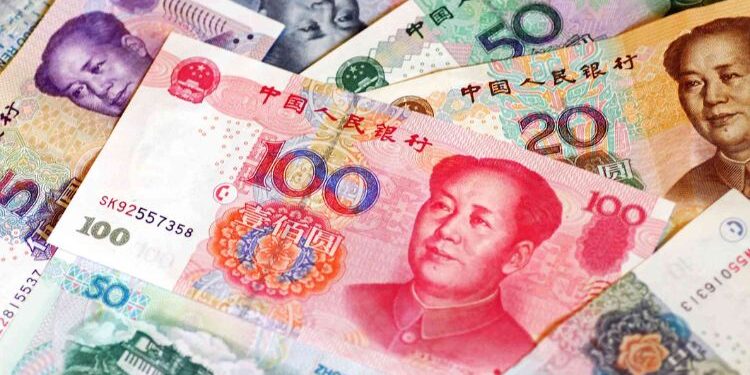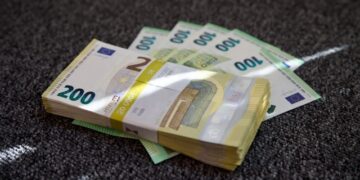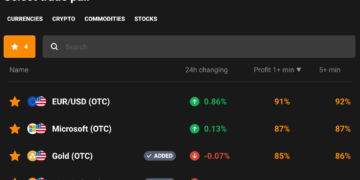It will take a long time for the yuan to replace the dollar, but it is gradually gaining ground as a regional currency. And it has the potential to become a global reserve currency. But Beijing’s tight grip on capital flows and limited transparency in Chinese financial markets make it unlikely that the yuan will ever enjoy the kind of global standing necessary to challenge the dollar.
Founded In 2014
China wants to break the dollar’s stranglehold on the global financial system and gain more control over how people spend their money. A digital yuan could deliver on both fronts. But a mature CBDC would also enable Beijing to export its state surveillance system abroad, tracking all users’ transactions on a permanent ledger that can be searched for money laundering, sanctions violations and other crimes. This would be impossible to do using the SWIFT messaging service, which requires member banks to police their own transactions for such purposes and cooperate with US authorities.
Moreover, the PBOC believes that a digital yuan will address the issue of “cash and coin addiction.” It’s true that 93% of China’s mobile payments are processed via TenPay (WeChat) and AliPay, which can only be used within China. But a digital yuan can be used anywhere in the world. That could be particularly attractive to consumers in countries such as Japan, Germany and the United States.
Headquartered In New York City
Yuan Global managing attorney, Gang Yuan, has over 10 years of experience advising US and China based clients on cross border transactions including mergers and acquisitions, joint ventures and disputes resolution. He has advised large private equity firms and public companies in outbound investments from China and acted as counsel for a number of Chinese domestic investors and foreign corporations for their investment activities in the US, Canada, Europe, Asia and Latin America.
Investors can invest in yuan/renminbi via forex market trading or through leveraged products such as exchange traded funds (ETFs). For example, the WisdomTree Dreyfus Chinese Yuan Fund is an ETF that seeks to reflect the performance of yuan interest rates and the yuan’s value relative to the dollar. However, these products may not be suitable for all investors since leveraged investments magnify both gains and losses.
Licensed By The Financial Industry Regulatory Authority (FINRA)
The yuan is getting a lot of attention lately, but it still faces significant long-term obstacles to becoming a global reserve currency. China’s monetary system and financial markets are hampered by capital controls and price fixing that make it difficult to attract investors and companies. But the war in Ukraine may have given Beijing a chance to carve out a bigger role for the yuan. As a result of this and other developments, the yuan is rapidly gaining ground as an international payments currency. For instance, it now trumps the euro as a medium of exchange in the Yuan Global trade finance network that handles letters of credit—a form of short-term financing that facilitates international trade.
Meanwhile, a growing number of global companies are raising money in yuan-denominated bonds issued by mainland Chinese and Hong Kong banks, known as panda bonds. This is helping to increase the yuan’s share of trade finance, which is a key factor in its internationalization.
Registered With The Securities And Exchange Commission (SEC)
The yuan’s gradual rise is chipping away at second-tier currencies, such as the British pound, and expanding China’s share of global payments transactions on the SWIFT system. However, it’s not yet eroding the dollar’s position as the world’s reserve currency. Moreover, there is no sign that the yuan has gained the acceptance of international financial markets that a reserve currency must have. In order for a reserve currency to be widely used and accepted, it must have large and accessible financial markets that denominate investments in short-term deposits, longer-term bonds, stocks, options, futures contracts, and the like.
Investors wishing to maximize their investment in the yuan can do so by trading yuan/renminbi currency futures on the Chicago Mercantile Exchange under the symbol RMB. Just as leverage magnifies gains, it can also magnify losses – and that’s why it’s important to have a robust risk management strategy in place before investing in yuan/renminbi derivatives.
Conclusion
Yuan Global is a policy consultancy that helps U.S. companies navigate China’s financial ecosystem. Yuan is a former senior policymaker in the Obama Administration and attorney at Sidley Austin LLP. It will take time for Beijing to open its markets to the rigors of international financial assets like equities and bonds. And its undeniable communist need for control makes it unlikely that the yuan will challenge the dollar.













